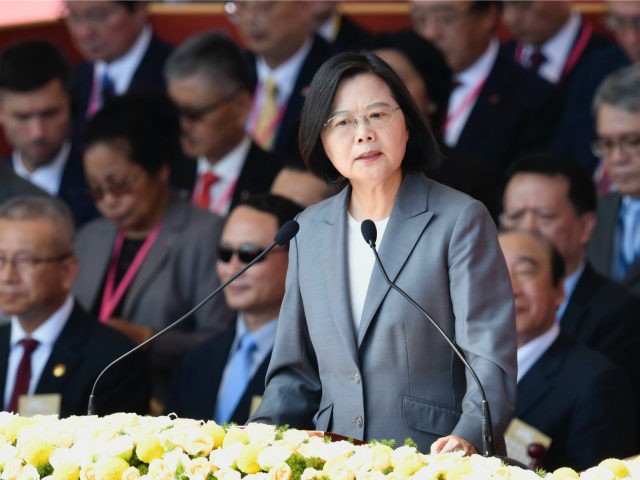Officials from the democratic republic Taiwan are concerned that China is meddling in their upcoming presidential election in January, seeking to back a candidate from an opposing political party that is China-friendly.
They say that although incumbent President Tsai Ing-wen is leading in the polls, they are concerned about what China may do leading up to and on the day of Taiwan’s January 11 election to elect the challenger from the Kuomintang (KMT) party, Han Kuo-yu, the mayor of Kaohsiung.
The concerns have been shared by officials and documented in numerous media reports. A recent NPR report described suspected Chinese state-backed efforts to influence Taiwan’s media, such as buying Taiwanese media companies and creating Facebook pages in Taiwan to become “content mills” for Chinese Communist Party propaganda that have at times been mistakenly picked up by Taiwanese media outlets.
Taiwanese officials suspect that China interfered in their 2018 municipal elections. During those elections, Han enjoyed a surge of popularity after a suspected Chinese-led campaign in the media to win as mayor of Kaohsiung.
China’s government has long opposed Taiwanese independence and has stated its plans to reunite the self-ruling island with the mainland, including by force. Chinese nationalists fled to Taiwan after losing a civil war with Chinese communists in 1949 and established a separate government. Today, it is a thriving democracy, with a robust defense relationship with the United States.
China’s effort to pressure the current president, who is from the pro-Taiwan independence Democratic Progressive Party, began after she took office in May 2016. Beijing has pressured seven of Taiwan’s allies to switch their allegiance to China, and has run an aggressive campaign against American and international businesses to stop referring to Taiwan as a separate country.
China has also stepped up military pressure against Taiwan. In late November, China sailed an aircraft carrier group through the Taiwan Strait. The move prompted a statement from the de facto U.S. ambassador to Taiwan, Brent Christensen.
“We are aware that China is attempting to apply pressure through various means on Taiwan. Certainly, these attempts to influence Taiwan’s democratic process are of concern,” said Christensen, according to Reuters. “We believe that malign actors are using disinformation campaigns to make people lose faith in democratic institutions.”
Taiwan is trying to fight back against the disinformation, but with uncertain results.
The government has begun to fine news outlets and criminally charge individuals who spread inaccurate information, according to reports. In June, it blocked the entry of a TV reporter from mainland China allegedly broadcasting misleading reports and is considering blocking video-streaming sites run by Chinese companies Baidu and Tencent from broadcasting in Taiwan, according to NPR.
However, these government-led efforts have faced criticism due to the potential of clamping down on press freedom, and have limited effectiveness against Chinese propaganda coming through private social media channels, which is more difficult to detect and combat.
One tragic example occurred last year when a Taiwanese diplomat in Japan was falsely accused of abandoning Taiwanese tourists stranded by a typhoon. The story was first posted on a popular messaging forum in Taiwan called PTT, and eventually, Taiwanese evening talk shows picked up the story. The Taiwanese diplomat ended up taking his own life.
China has denied interfering in Taiwan’s election. The spokesman for China’s Taiwan Affairs Office, Ma Xiaoguang, told the New York Times in November that it was “fake news” and “not even worth refuting.” He said the allegations are “completely fabricated out of thin air. We hope our Taiwanese compatriots won’t believe it.”
The suspected interference from China may backfire, however. Tsai is currently leading in the polls and many Taiwanese are witnessing Hong Kong protestors fight for their autonomy against an encroaching Beijing.
Still, Taiwanese officials are afraid of what may happen between now and January 11.
Follow Breitbart News’s @Kristina_Wong.

COMMENTS
Please let us know if you're having issues with commenting.